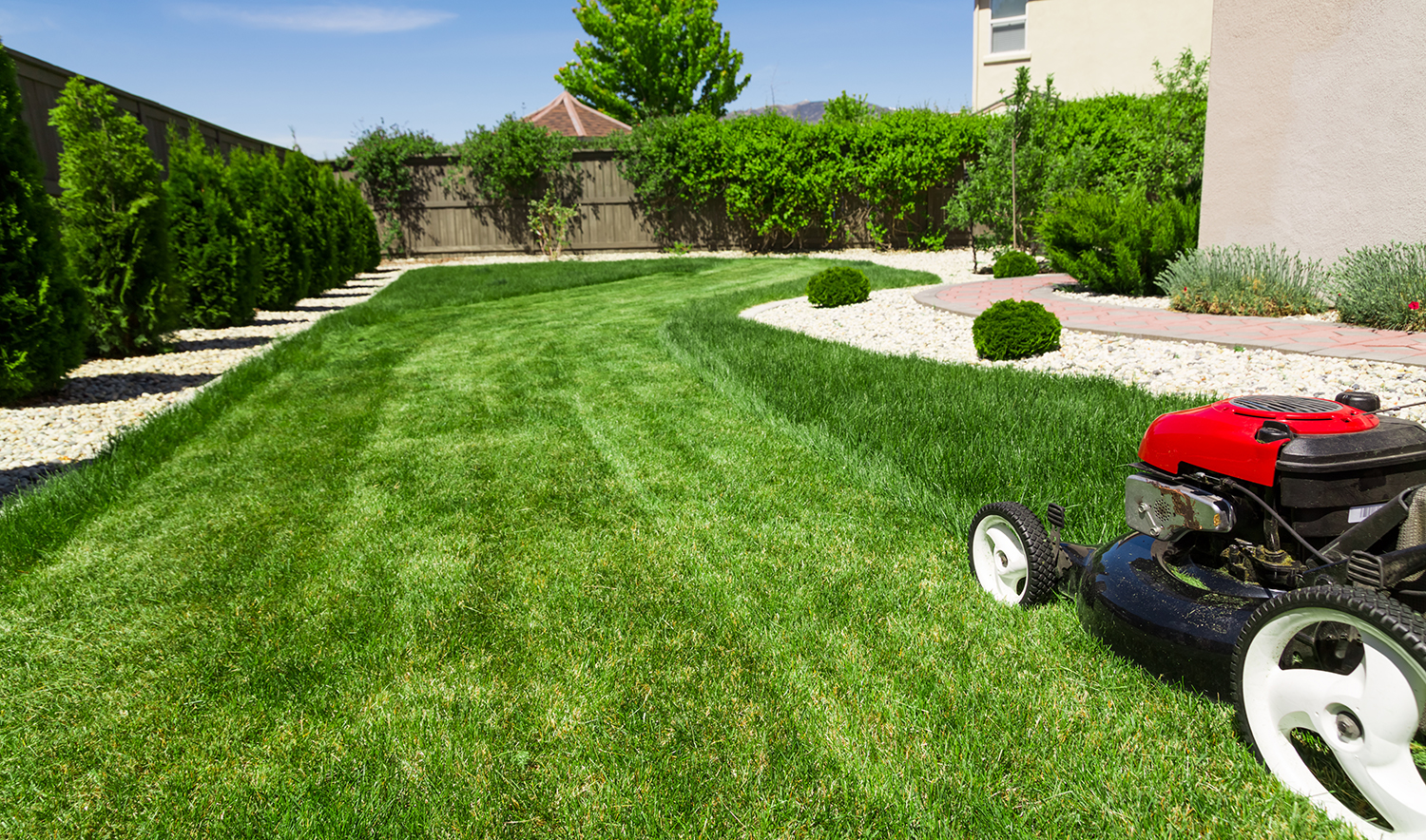 Lawn Care
Lawn Care
Expert Tips for a Healthy Lawn
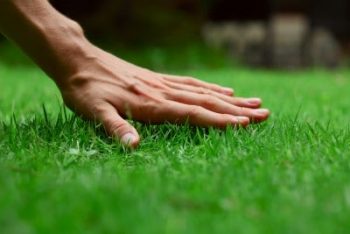 Keeping you grass looking green and healthy can sometimes be a challenge. Here are some top tips for keeping up with your grass, as well as things you can do to keep it healthy and weed-free.
Keeping you grass looking green and healthy can sometimes be a challenge. Here are some top tips for keeping up with your grass, as well as things you can do to keep it healthy and weed-free.
Mowing
Cut your grass’s blades to the recommended height. This can vary from one species to the next. Some species thrive at a height of 2-3 inches, while others do best at 1.5-2 inches. However, the universal rule is to only mow about 1/3 of the length off.
The grass’s root system can be compromised if you cut the blades too short. This is because the overall plant system will focus its resources on re-growing the blades. That can leave the ever-important root system somewhat neglected, which can compromise the overall health of your lawn.
Make sure you mow the grass when it’s dry. Cutting your lawn when its wet can clog up your mower, as well as damaging the grass itself.
Mowing wet grass can pull up clumps rather than just clipping the blades. Not only is this unattractive, but the leftover clumps of grass can starve the topsoil of oxygen and water. This can cause damage to the surface as well as to the roots.
You want to keep the mower blades as sharp as possible. If the blades are dull, this will cause the grass to go brown due to the angle at which the grass has been cut. With a sharp blade on the mower, this will resolve that issue and keep the blades a healthy green without the damage caused by jagged, worn out blades.
Change the direction you mow your grass. Doing this can prevent compacted ruts that tend to develop from mowing the same direction each time.
Additionally, this practice will make the grass stand taller. Pushing the blades in opposing directions helps prevent “leaning,” resulting in a lawn bed that stands tall and proud.
Learn more about our mowing services.
Watering
Don’t water your lawn too often. Watering the grass to much will cause the roots of the grass to become shorter. When this happens, it ends up needing to be watered more often.
Why is that?
Having a longer period in-between watering causing the grass to grow longer roots, in search of moisture. This strengthens the entire root system and better equips your lawn for drought periods.
And of course, stronger roots mean healthier blades. You want to avoid “spoiling” it with a too-frequent irrigation schedule that doesn’t allow it to fortify itself. This Watering Guide by Grass Type, has additional information to offer.
Fertilizing
Sometimes you need to help the grass when it comes to things like providing proper minerals and nutrients. Fertilizing prevents things like germination of weed seeds, because it helps your grass grow in too densely for invasive plants to take over.
Products like corn gluten grass feed are a great organic alternative to common weed and feed. Manufactured products sometimes contain other chemicals that can cause harm to your grass over time.
Aerating
Spring and fall are both great times to aerate your lawn. This involves punching tiny holes all over the grass bed. The holes are not very deep, but are a great help for the grass roots to grow deeper.
When your grass crown and topsoil can “breathe” better, it allows for key nutrients to reach further into the soil to help the grass grow. This means a stronger root as well as a greener lawn.
Visit our service page for Aerating Services to learn more about how Denton Lawn Care & Landscaping can help!
Mulching
It’s a great idea to mulch your grass when cutting. What this means is, when you cut the grass, the cuttings are then shredded into tiny clippings. They act as a nutrient for the grass, as well as a good way of retaining water in the topsoil.
The grass cuttings – or mulch- are deposited over the freshly cut grass as you mow. This make it a quick and easy step to keeping on top of your lawn as you mow it. Additionally, the clippings can be gathered and redistributed to other parts of your yard, by using a bag mower.
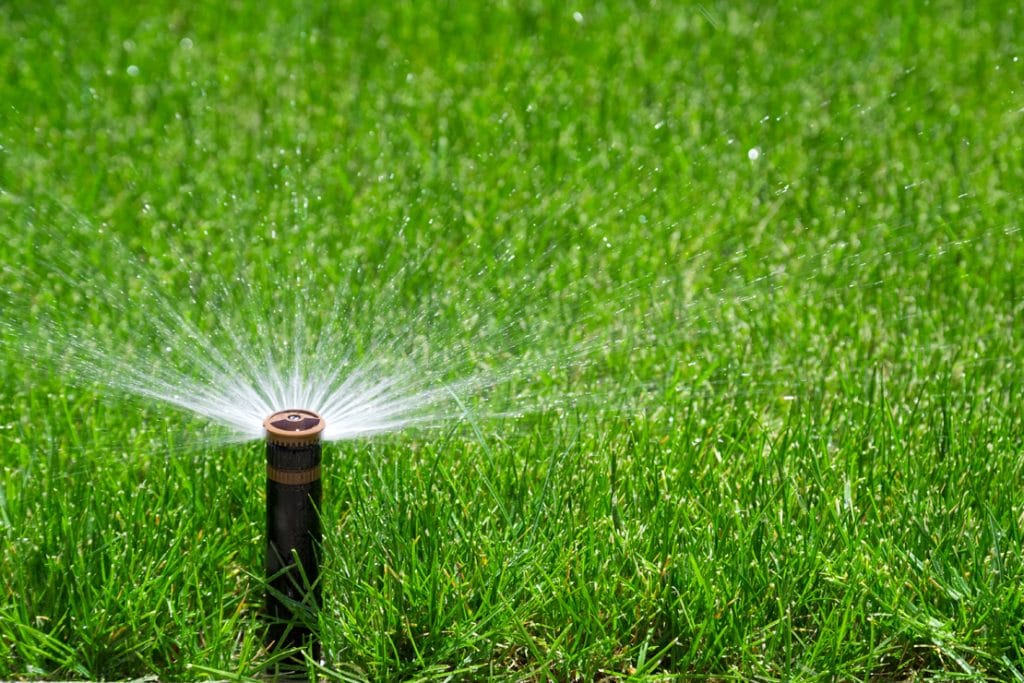
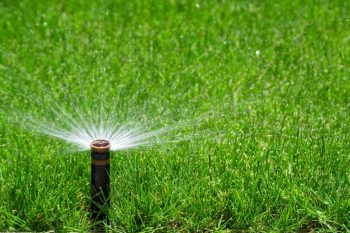 Summer is certainly not the easiest time to establish a lush bed of green grass in your yard. However, if you’ve got the right tools and information, it actually is a doable project.
Summer is certainly not the easiest time to establish a lush bed of green grass in your yard. However, if you’ve got the right tools and information, it actually is a doable project.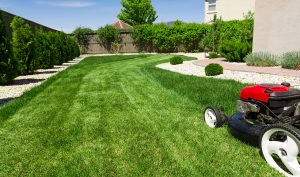 Denton Lawnscapers is here to make sure you’ve got all the essentials covered for excellent lawn care this Spring. Knowing the basics about mowing, watering, and fertilizing can make all the difference between a lackluster lawn and a gorgeous bed of grass.
Denton Lawnscapers is here to make sure you’ve got all the essentials covered for excellent lawn care this Spring. Knowing the basics about mowing, watering, and fertilizing can make all the difference between a lackluster lawn and a gorgeous bed of grass.